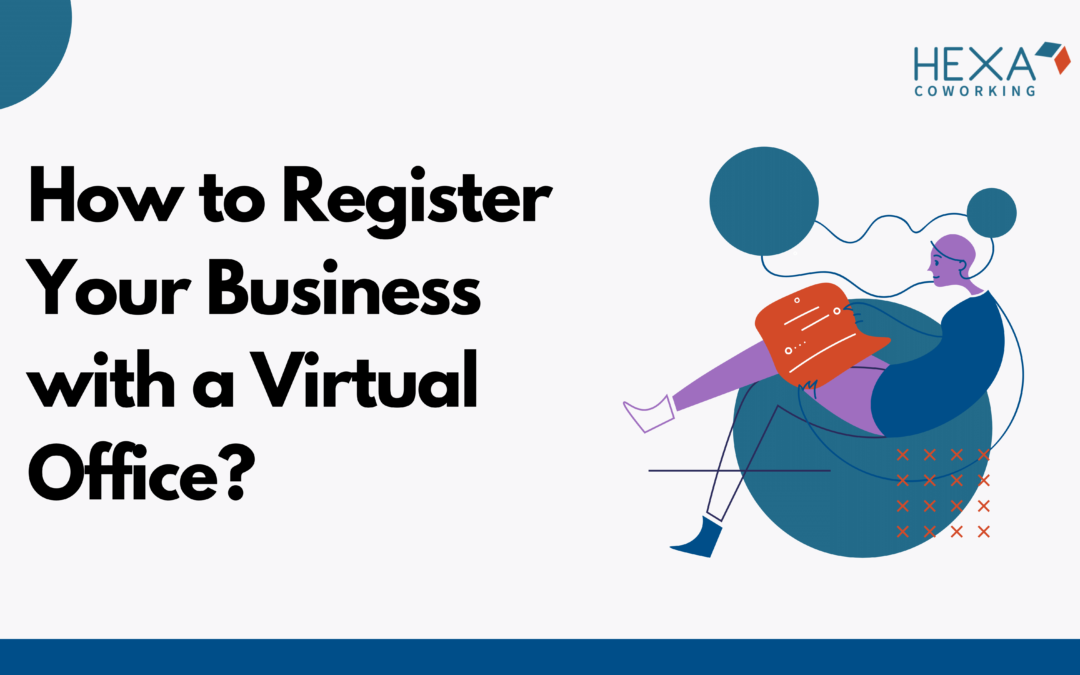Your brilliant idea, a valuable skill, or incredible innovation has matured into a business, and it’s time to make it official. While you may be ready to obtain a business license, you may not be ready to sign a lengthy – and expensive – lease agreement for a full-fledge office space. Learn how to Register Your Business with a Virtual Office?
Can you register a business with a virtual office?
The good news is: yes, you can and should register even on online-only business, as a state, country, and city regulations and laws still apply. The key is having a physical base for your virtual office, which is where you can collect mail and receive official documentation – including the business license.
For many small business owners, the street address, receptionist services, and ability to receive mail are amenity enough to make a coworking space, or virtual office, well worth the weekly or monthly amount they’ll invest in renting the space.
Challenges Entrepreneurs Face with Permanent Office Addresses
Traditional businesses have been operating successfully from permeant office spaces for decades. So why aren’t they a great fit for all types of business? For fledgling businesses, permanent office space can come with some challenges, including:
- Low margins and high costs. Leasing a permanent space is very pricey, and siphoning away a big chunk of change to rent and facility upkeep can drain growing businesses of critical cashflow.
- Brand image. Of course, the primary way businesses can stave off costs with a permanent space is to rent less expensive spaces – which are often in less desirable locations and in less-than-ideal facilities. You didn’t quite picture your first client having to park next to an abandoned warehouse with all its windows smashed in, did you?
- Cramped quarters. The other challenge new businesses often face in permanent office addresses is limited space. If budgets are constrained, so often is your space, and the extra facilities like conference rooms are often the easiest thing to cut – until you have a big pitch to make.
Challenges Entrepreneurs Face with Home Office Addresses
The opposite of steep commercial rent payment is no rent payment at all, a possibility when you use your personal address for your business. Some common challenges with personal addresses include:
- Personal liability. Most small business owners intentionally separate their personal assets and their businesses, often by forming a limited liability company (LLC) or a corporation to protect the owner’s personal assets. However, the small business owner may be personally liable for business obligations, debts, or penalties if the court system determines business and personal activities were intertwined.
- Lease or HOA restrictions. Some leases or HOA agreements preclude the use of a home address as the business address.
- Loss of privacy. Your business address appears in many locations: on your website, on contracts, and on official state registries. Since your customers will know where you live, this can pose a security risk.
Virtual Offices: a Solution for Growing Businesses
Although a virtual office isn’t no-cost, it is low-cost, and can provide some of the amenities – like conference rooms – small businesses may struggle to afford in a corporate lease. A virtual office can also curb security and privacy concerns, allowing entrepreneurs to still work from home sometimes while enjoying all the benefits of an office.
Steps for Registering your Business
Now that you’re armed with a physical address you can feel confident in, you’ll want to start by contacting your city and county government to ensure you understand which licenses your business needs. As part of that, you’ll also want to understand any regulations around home-based or Internet businesses, as well as any sales tax or local business taxes, if they apply to your business.
- Locate the licensed agency, or ask a CPA or business consultant what you need. Don’t forget to check out the support that may be available to your business as part of a venture studio or incubator at your virtual office location.
- Gather all your licensing application forms. Government offices and websites should provide all the necessary information. Don’t forget to request a fee schedule and a list of special requirements you may need in addition to your business license. When you apply for your license, be sure to note on the application that your business is primarily operated from a virtual office or Internet location.
Are you ready to make your business official? Contact us at hexa@hexatx.com to discover which membership best meets your needs, whether it’s our low-cost YVO membership or a dedicated desk, we can help you take the next step in your business.

















